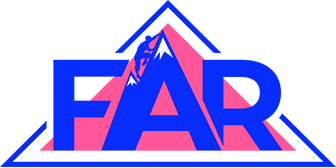Relapse is a common experience in addiction recovery. It’s important to remember that it’s not a failure, but rather a setback on the road to long-term sobriety. Understanding the reasons behind relapse can empower individuals to develop effective coping strategies and increase their chances of sustained recovery.
Why Do People Relapse?
Relapse can be triggered by a complex interplay of factors, both internal and external. Here are some of the most common reasons:
- Stress and Anxiety: Life stressors, such as job loss, relationship problems, financial difficulties, or even everyday anxieties, can overwhelm individuals in recovery. These stressors can trigger cravings and undermine coping mechanisms.
- Triggers: Specific situations, people, places, or even thoughts can trigger cravings. These triggers can be powerful and can lead to impulsive decisions to use.
- Lack of Support: Social isolation and a lack of strong support systems can increase vulnerability to relapse.
- Mental Health Conditions: Untreated mental health conditions, such as depression, anxiety, and trauma, can significantly increase the risk of relapse.
- Physical Health Issues: Chronic pain, medical illnesses, and medication side effects can contribute to relapse.
- Lack of Coping Skills: Many individuals in recovery lack effective coping skills for managing cravings, stress, and triggers.
- Holiday Season: The holiday season can be particularly challenging for individuals in recovery. Increased social pressure, family gatherings, and the availability of alcohol can significantly increase the risk of relapse.
What is the Most Common Reason for Relapse?
Stress is widely considered the most common reason for relapse in addiction recovery. When faced with life challenges, individuals may revert to substance use as a maladaptive coping mechanism, even if they have been successfully abstaining.
When individuals experience stress, their bodies release stress hormones like cortisol. These hormones can trigger cravings by activating the brain’s reward centers, which were previously associated with substance use. Stress can also disrupt sleep patterns, impair judgment, and increase anxiety, making it harder for individuals to cope effectively. Furthermore, if individuals lack healthy coping mechanisms for dealing with stress, they may resort to substance use as a quick and temporary escape, even if they recognize the negative consequences.
Risks of Relapse
Relapse can have serious consequences, including:
- Health Risks: Overdose, increased risk of infectious diseases (like HIV and hepatitis), and exacerbation of chronic health conditions.
- Legal Issues: Potential for arrest, incarceration, and loss of employment.
- Relationship Problems: Strain on family relationships, loss of trust, and damaged interpersonal relationships.
- Financial Difficulties: Loss of income, legal fees, and increased healthcare costs.
- Emotional and Psychological Distress: Feelings of shame, guilt, and despair, which can further complicate recovery.
How Can You Tell When Someone Has Relapsed?
Recognizing potential relapse in someone in recovery can be challenging, but here are some key signs:
Behavioral Changes
- Increased irritability: Becoming easily agitated or angered
- Isolation: Withdrawing from social activities, support groups, and loved ones
- Changes in sleep patterns: Insomnia, excessive sleepiness
- Neglecting personal hygiene: Deteriorating appearance
- Financial problems: Unexplained financial difficulties
- Changes in appetite: Significant weight loss or gain
- Risk-taking behavior: Engaging in risky or impulsive behaviors
Emotional Changes
- Increased anxiety or depression: Experiencing heightened anxiety, hopelessness, or despair
- Denial or defensiveness: Becoming defensive or dismissive when concerns about their recovery are raised
- Resentment: Feeling resentful towards others in recovery or towards the recovery process itself
- Intense cravings: Experiencing strong and persistent cravings for the substance of abuse
Physical Changes
- Changes in appearance: Bloodshot eyes, dilated or constricted pupils, unusual skin conditions
- Physical withdrawal symptoms: Experiencing symptoms such as tremors, sweating, nausea, or vomiting
Preventing Relapse
Preventing relapse requires a multifaceted approach:
Strong Support System
Building a strong support system is crucial for addiction recovery. You can develop your support system by doing the following:
- Identify potential sources, such as family, friends, support groups (AA, NA), therapists, and sponsors.
- Cultivate meaningful connections by actively participating in support groups, engaging in sober social activities, and building relationships with other members.
- Nurture these relationships through honest communication, setting boundaries, and expressing gratitude.
- Remember to prioritize self-care and focus on building a diverse support system with individuals who offer different perspectives and support.
Relapse Prevention Plan
Develop a personalized relapse prevention plan that includes:
- Identifying and avoiding triggers: Recognize and avoid situations, people, and places that increase cravings.
- Developing coping skills: Learn and practice healthy coping mechanisms for managing stress, anxiety, and cravings, such as relaxation techniques, mindfulness, and exercise.
- Building a healthy lifestyle: Prioritize physical health, nutrition, and sleep.
- Engaging in regular self-care: Make time for activities that bring joy and relaxation.
- Mental Health Treatment: Address any underlying mental health conditions through therapy, medication, or other appropriate treatments.
- Continuous Learning: Attend recovery meetings, participate in workshops, and seek ongoing education about addiction and recovery.
Seek Professional Help
Don’t hesitate to reach out for professional help if you are struggling with cravings or feeling overwhelmed. It isn’t uncommon to struggle with your sobriety even after completing an addiction treatment rehab program. It’s important to have continued support to maintain sobriety.
Focused Addiction Recovery Offers a Relapse Prevention Program
Focused Addiction Recovery in North Carolina offers a comprehensive relapse prevention program designed to equip individuals with the tools and strategies necessary to maintain long-term sobriety. Our program includes:
- Individualized Relapse Prevention Planning: We work with each client to develop a personalized relapse prevention plan that addresses their unique needs and challenges.
- Coping Skills Training: We provide training in a variety of coping skills, including relaxation techniques, mindfulness, and stress management strategies.
- Triggers Identification and Avoidance: We help clients identify and avoid triggers that can lead to relapse.
- Support Group Participation: We encourage and facilitate participation in support groups, such as AA or NA.
- Family Involvement: We involve family members in the recovery process to enhance support and understanding.
If you are struggling with addiction or are concerned about the risk of relapse, please contact Focused Addiction Recovery in North Carolina. Our experienced team of professionals can provide you with the support and guidance you need to achieve and maintain long-term recovery.

